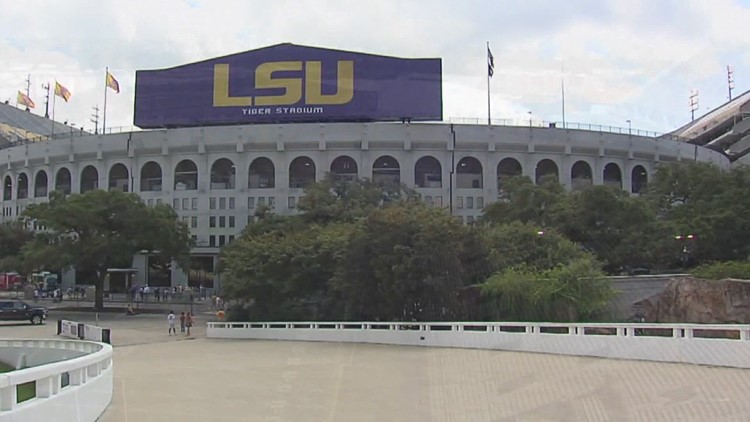BATON ROUGE, La. — LSU officials will not speak at the Louisiana legislature’s continued hearings into the alleged coverup of sexual assault, harassment and misconduct inside LSU’s athletics department after a lawsuit was filed against the university.
According to a letter from Winston DeCuir, Jr., the vice president of legal affairs and general counsel for LSU, people associated with LSU will no longer be made available to speak under oath at the senate committee hearings.
“Ms. Sharon Lewis has announced that she intends to pursue claims against LSU for discrimination, Title IX retaliation, and civil RICO violations,” a letter from DeCuir to Sen. Regina Barrow said. “The facts underlying these claims are the same facts that the committee has been questioning LSU representatives about during the last two hearings.”
Attorneys for LSU associate athletic director Sharon Lewis filed a Title IX retaliation and corruption lawsuit against the university’s board of supervisors, former head football coach Les Miles and others in relation to the multiple sexual assault scandals at LSU.
Lewis’ attorney, Tammye Brown, alleges that the university leadership, the athletic department and their law firm Taylor Porter “entered into a conspiracy to hide Les Miles’ sexual harassment investigation from federal officials and the public and to retaliate against Ms. Lewis.”
RELATED: Attorney: LSU acted as 'crime syndicate' in cover up of Les Miles' alleged sexual harassment
Set to meet Thursday, a Senate Committee wanted at least 10 LSU administrators to testify.
“Being able to ask the questions, especially in light of things that have now come forward, I think is really important,” said Sen. Regina Barrow, chair of the Women and Children Committee, said last week.
Head football coach Ed Orgeron was on that list, but he refused to appear, sending a written statement instead.
LSU’s legal counsel said that the legislature’s line of questioning is too close to what’s contained in the lawsuit for LSU to continue answering those questions under oath.
“Allowing persons who will inevitably be witnesses in to testify under oath on facts related to these claims, is simply not a prudent risk,” DeCuir wrote.
See the full letter from LSU's legal counsel below:



